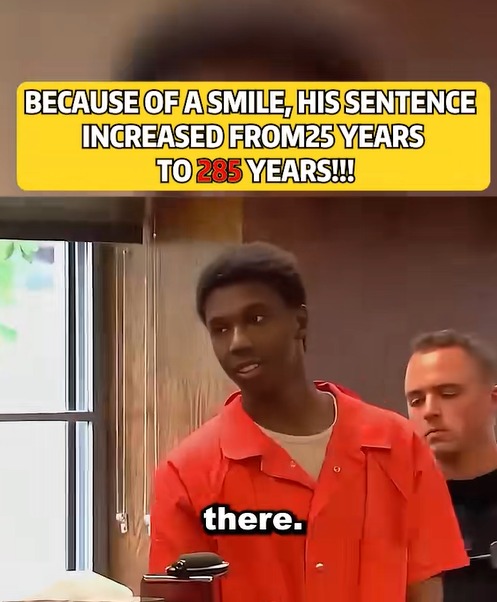In a courtroom filled with silence and tension, a young man named Malik stood before the judge — already facing 25 years behind bars for a string of violent robberies. The atmosphere was heavy, the victims’ families sat quietly, waiting for justice.
As the judge prepared to hand down the sentence, Malik did something that shocked everyone in the room. Instead of showing remorse, he smirked. That single, cold smile changed everything.
Prosecutors had already described Malik as unrepentant and dangerous — someone who saw his crimes as a game. And that smile… it was all the judge needed to see. It wasn’t a nervous grin or a misunderstanding — it was arrogance. It was mockery.
The judge paused, staring at Malik for several seconds before speaking again — his tone suddenly much harder. “You think this is funny?” he said. “You’ve taken lives, destroyed families, and you stand here smiling.”
The courtroom erupted. Gasps, whispers, tears — and in that moment, the judge made a stunning decision. He announced that each of Malik’s charges would now be served consecutively, not concurrently.
When the total was read aloud, everyone froze — 285 years in prison. What was supposed to be 25 years became a lifetime times ten.
Malik’s expression finally changed. The smirk disappeared. Reality set in.
This case has since become a powerful example of how attitude and lack of remorse can dramatically alter a sentence — and how, in a courtroom, one expression can speak louder than any words.
